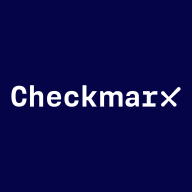

Find out what your peers are saying about Sonar, Veracode, Checkmarx and others in Static Application Security Testing (SAST).
| Product | Market Share (%) |
|---|---|
| Checkmarx SAST | 1.3% |
| SonarQube Server (formerly SonarQube) | 20.3% |
| Checkmarx One | 9.9% |
| Other | 68.5% |
| Product | Market Share (%) |
|---|---|
| Seeker | 0.1% |
| Cisco Umbrella | 34.6% |
| Zscaler Internet Access | 32.4% |
| Other | 32.900000000000006% |


Checkmarx SAST provides advanced static application security testing by identifying vulnerabilities in source code. It's ideal for ISOs, security professionals, and developers striving to secure applications during development.
Checkmarx SAST is known for its powerful code scanning capabilities that integrate seamlessly into existing development environments. It supports a wide range of programming languages, which makes it applicable for diverse development projects. Some users suggest improvements in the scan performance speed and enhanced support in handling false positives to further optimize workflow efficiency.
What are the standout features of Checkmarx SAST?Implemented across various industries, Checkmarx SAST supports sectors like finance, healthcare, and technology with their stringent security requirements. By integrating seamlessly into existing workflows, it ensures that applications remain secure while not disrupting industry-specific processes.
We monitor all Static Application Security Testing (SAST) reviews to prevent fraudulent reviews and keep review quality high. We do not post reviews by company employees or direct competitors. We validate each review for authenticity via cross-reference with LinkedIn, and personal follow-up with the reviewer when necessary.